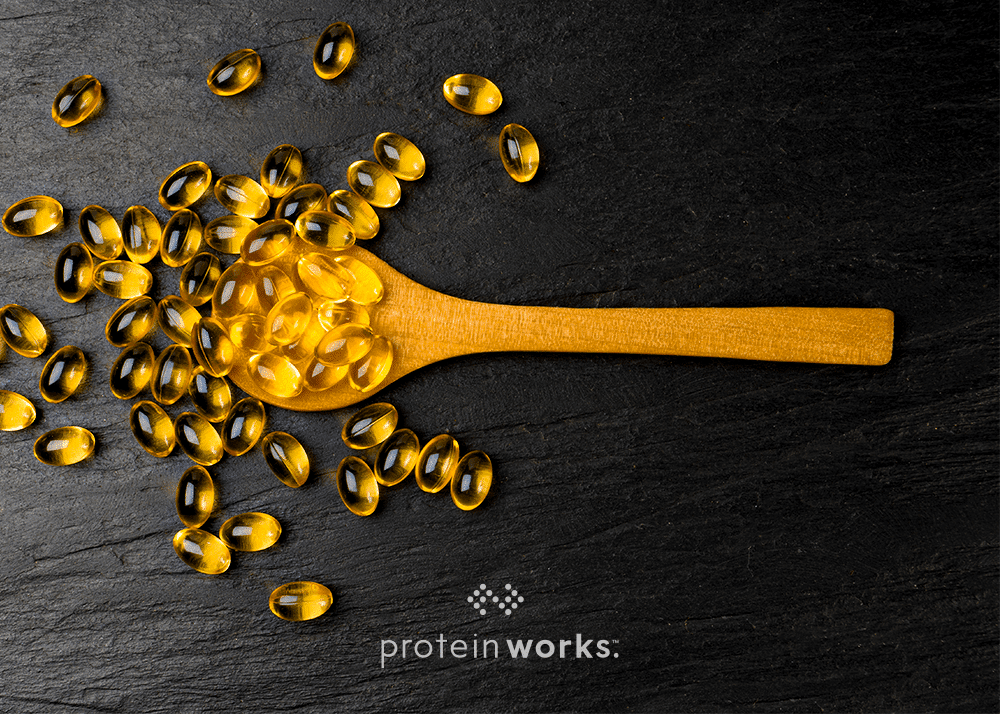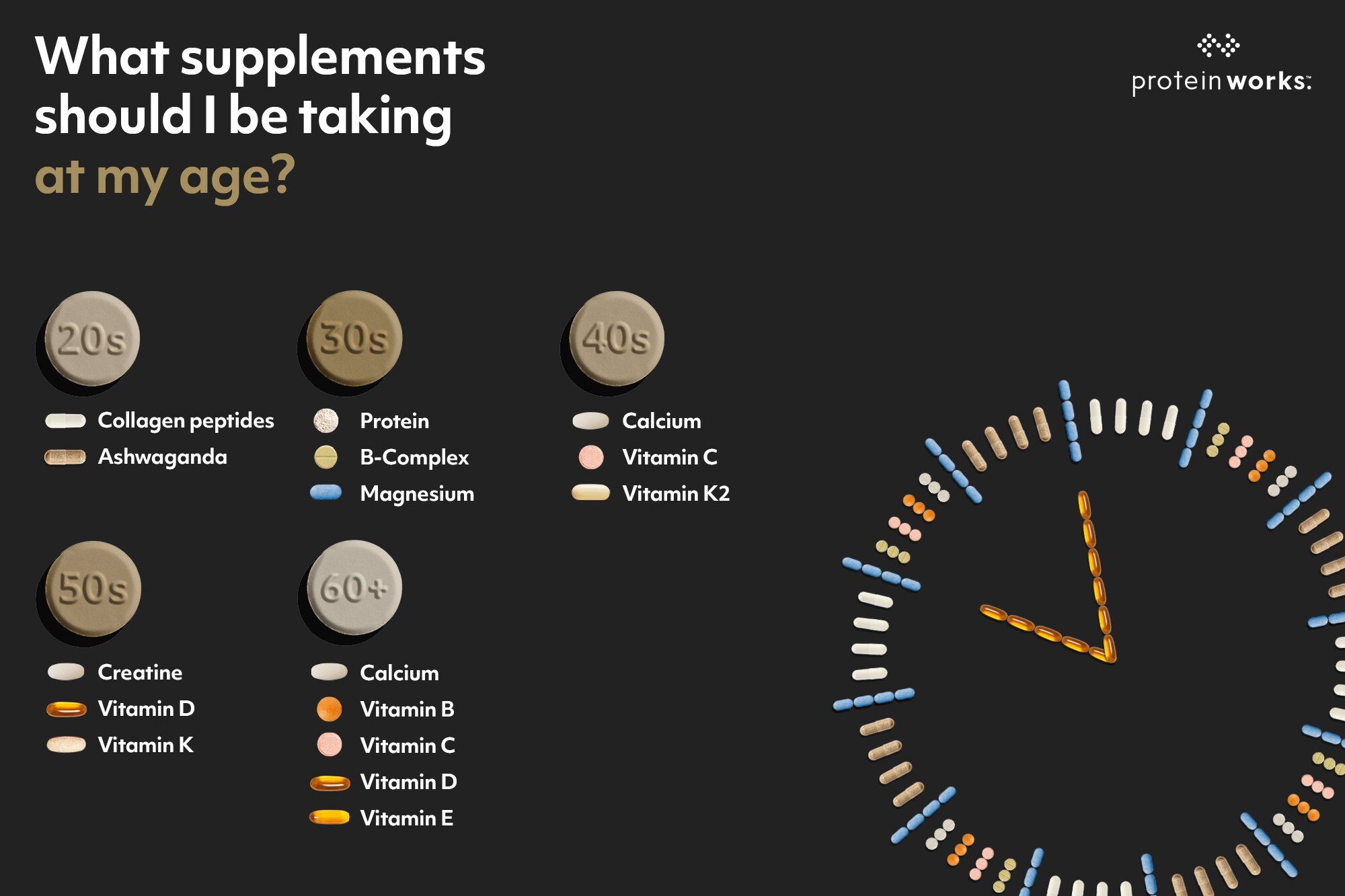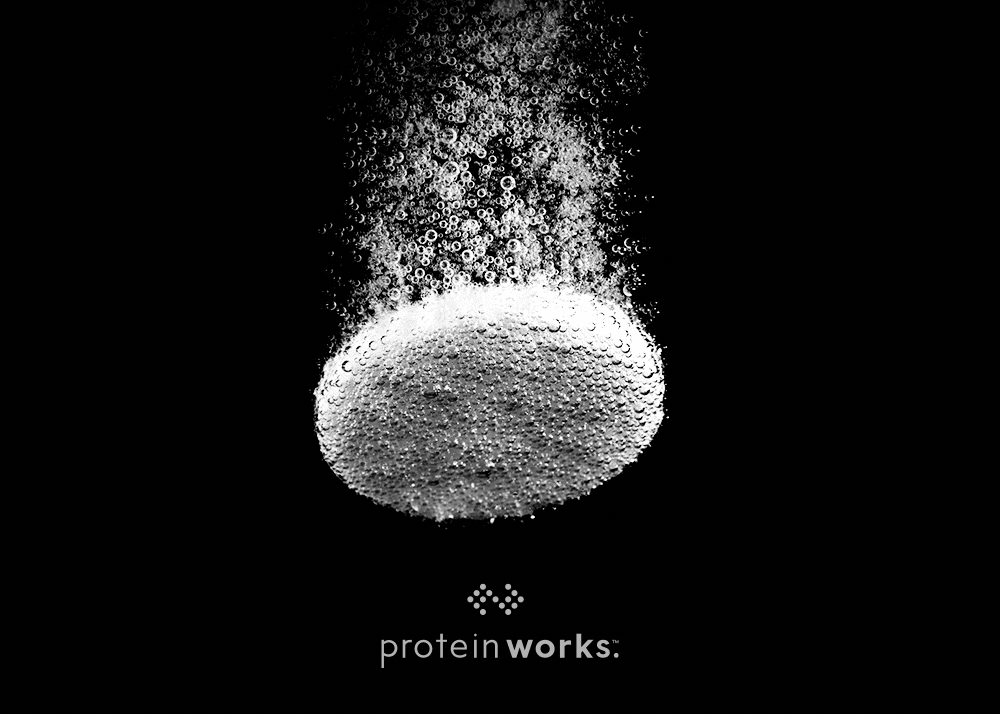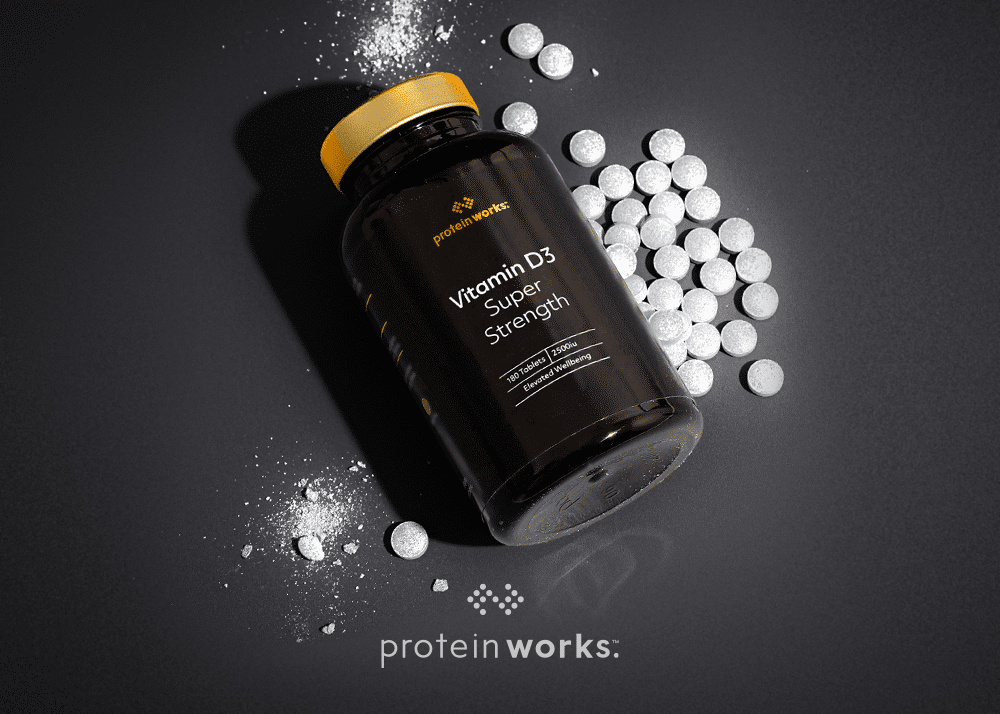
Catering For Your Age: What Supplements Do I Need?
Supplements have become increasingly popular, but the flood of online advice has made it difficult to know what is genuinely required and safe to consume.
At Protein Works, we’ve conducted 2 studies revealing generational attitudes towards nutrition and health misinformation on social media which reveal some striking trends:
72% of Gen Z are taking supplements, compared to just 51% of older Boomers. Millennials are especially proactive, with individuals in these groups reporting as many as 18 supplements in their daily routines. However, 66% of those encouraging supplement consumption online have no qualifications, and 27% are simply promoting products for profit, leading to widespread misinformation.
With so many conflicting opinions, many people are left unsure of what they actually need. Instead of following generic advice, it’s essential to tailor supplement intake to individual needs, taking into account key life milestones, ages, and seasonal changes. At Protein Works, we believe in providing scientific-based, unbiased, and personalised approaches to help ensure your body is given the proper support at the right time.

Adjusting your supplement intake based on age and life stage can help you address specific health needs and maintain overall well-being.
While supplements may be beneficial, it is not essential to take all that are recommended, as many vitamins and nutrients can be obtained through a balanced diet. Supplements are intended to complement your nutritional intake for convenience, and their use should be tailored to your specific health needs.
While a balanced diet is essential for overall health, there are certain nutrients and vitamins that may be more conveniently consumed as supplements rather than through food alone. It’s important to consider this convenience when evaluating your diet and supplement choices.
In your 20s: Preparing for gradual health and lifestyle adjustments
Key supplements:
- Ashwagandha
- Collagen
- Iron and B vitamins
Your 20s are a crucial decade where the focus should be on addressing both immediate needs and preparing for gradual adjustments. This period can be marked by high stress for some individuals due to career and personal life adaptations, making ashwagandha beneficial for managing stress and enhancing mood. Ashwagandha, in particular, helps reduce anxiety and support mental well-being during these potentially demanding years.
Collagen production starts to decline in the late 20s, leading to reduced skin health and joint health. To counteract this, consider incorporating collagen peptides into your routine, which can help maintain skin firmness and joint integrity.
Additionally, key milestones for some such as the menstrual cycle require attention to nutrients like iron and B vitamins, which support energy levels and overall health.
These supplements may be more beneficial than obtaining nutrients solely through food:
- Collagen: While collagen is present in animal products like bone broth and certain cuts of meat, most people do not consume these regularly in high enough quantities.
- Ashwagandha: Ashwagandha is primarily found in supplement form, as it is an herb traditionally used in Ayurvedic medicine. It is not commonly included in everyday foods.
- Iron: Can be obtained through food, but absorption varies based on the source. Iron from plant sources is less readily absorbed, so combining them with vitamin C-rich foods, or simply through supplements can enhance absorption.
In your 30s: Maintenance, support and key life milestones
Key supplements:
- Protein supplements
- B vitamins
- Magnesium
As you enter your 30s, some people may notice early signs of ageing and face key life events. Muscle mass begins to decline after reaching its peak, so incorporating protein supplements (whey or plant-based) can help sustain muscle health.
Metabolic rate starts to slow, which can lead to fat accumulation if caloric intake is not adjusted. B vitamins, particularly B1, B2, B3, B6, and B12, play a crucial role in regulating metabolism and overall energy production.
Magnesium can play a key role in mood regulation and stress response during major life milestones.
For women, pregnancy often occurs around this age, necessitating additional nutritional support. Essential supplements include folic acid, calcium, iron, and vitamin D.
For men, testosterone levels begin to decline, particularly if trying for a baby. Zinc supplementation can help improve testosterone levels.
To achieve the same benefits as supplements at this life stage, try these meals:
- Muscle mass maintenance: Include grilled chicken with a side of tofu stir-fry or a spinach and egg frittata to support muscle health.
- Metabolism regulation: Start your day with a smoothie made from bananas, spinach, and eggs for a boost of B vitamins.
- Pregnancy support: Prepare a kale and chickpea salad or spinach and mushroom omelette for folic acid, iron, and calcium.
- Testosterone support: Opt for a lamb and lentil stew or oyster and vegetable stir-fry for zinc.
While many nutrients can be obtained through food, certain supplements may be advised:
- Vitamin D: Found in fatty fish, fortified dairy products, and egg yolks. Some people may still require sunlight exposure or supplementation to achieve adequate levels, especially in regions with limited sun or due to dietary preferences.
In your 40s: Bone density, elastin levels and perimenopause
Key supplements:
- Calcium and vitamin K2
- Vitamin C and hyaluronic acid
Entering your 40s, some may experience more pronounced changes in their body. Bone density starts to decrease, increasing the risk of osteoporosis. To support bone health, supplements like calcium and vitamin K2 are recommended, as calcium strengthens bones while vitamin K2 helps direct calcium to the bones instead of arteries.
Reduced skin elasticity becomes noticeable due to lower collagen and elastin levels, leading to dryness and wrinkles. Vitamin C and hyaluronic acid can help improve skin hydration and reduce signs of ageing.
Perimenopause, which typically begins in your 40s, can cause symptoms like insomnia and mood swings for some. Magnesium can play a key role in mood regulation and stress response.
Here are some food alternatives:
- Bone health: Have a broccoli and cheese stuffed chicken breast or a leafy green salad with a sprinkle of sesame seeds to boost calcium.
- Skin elasticity: Enjoy a broccoli and orange salad or stuffed bell peppers for a dose of Vitamin C.
- Perimenopause: A black bean and avocado salad or roasted vegetable and bean soup can help manage magnesium levels and mood swings.
Supplements recommended to further aid in a balanced intake:
- Vitamin K2: Found in fermented foods like natto (fermented soybeans), certain cheeses, egg yolks, and meats. However, it’s less prevalent in the average diet, making supplementation a consideration for some individuals.
- Hydraulic acid: While found in small amounts in certain foods like bone broth and organ meats, it’s primarily available in supplement form. The body also produces it naturally, but dietary sources are limited.
In your 50s: Muscle mass, joint health and menopause
Key supplements:
- Creatine
- Vitamin D and vitamin K
- Vitamin E
As you move into your 50s, ageing effects become more pronounced. Muscle mass and strength may begin to decline significantly for some, through a condition known as sarcopenia. To counteract this, creatine supplementation can help sustain muscle mass and strength.
Joint degeneration and stiffness become more common as cartilage breaks down. Vitamin D and vitamin K can support joint health and reduce inflammation.
Menopause in some women may bring a significant decline in oestrogen levels, affecting bone density, mood, and skin health. Vitamin E can help reduce hot flashes and improve mood.
Reducing potential signs of ageing can be achieved through these meals:
- Muscle mass and strength: A lean beef stir-fry with mixed vegetables or a grilled fish and quinoa bowl to support muscle strength.
- Joint health: Sip on bone broth soup or enjoy a turmeric and ginger-spiced chicken curry for anti-inflammatory benefits.
- Menopause support: A spinach and nut salad or tuna and avocado wrap can provide Vitamin E to ease menopause symptoms.
Key supplement unobtainable through food alone:
- Creatine: Found primarily in animal products, particularly red meat and fish. However, achieving the recommended daily intake (3-5 grams) would require consuming a substantial quantity of these foods, making supplementation a convenient option.
In your 60s and beyond: Physical and cognitive function
Key supplements:
- Calcium and vitamin D
- Vitamin B
- Vitamins C and E
- Probiotics
In your 60s, physical and cognitive decline can become more apparent. Bone density continues to decrease, increasing the risk of osteoporosis. Calcium and vitamin D are helpful for bone health.
Cognitive function may also start to decline, with an increased risk of dementia. Vitamin B supplements, especially when combined with vitamin D, and vitamin C can help improve cognitive function.
Vision decline, including macular degeneration, may become a concern. Vitamins C and E have been shown to reduce the risk of advanced macular degeneration.
Digestive function may also weaken with age, leading to issues like diverticulosis. Probiotics can support gut health and improve digestion to help with any potential weakening.
A balanced diet is essential in maintaining health, here are some meal ideas to address some potential declines:
- Bone health: Drink fortified orange juice with a leafy greens and dairy-laden smoothie or a yoghurt parfait with fresh fruit to strengthen bones.
- Cognitive function: Incorporate a mixed grain salad with eggs and leafy greens or a salmon and avocado sushi bowl for cognitive support.
- Vision health: Enjoy a citrus fruit salad or tomato and berry smoothie to protect your vision.
- Digestive health: Opt for yoghurt and fruit parfait or a kimchi and vegetable stir-fry to boost gut health.
Consider these when evaluating your diet and supplement choices:
- Probiotics: While food can be a good source of probiotics, achieving the higher recommended amounts (especially for specific health benefits) may require the inclusion of supplementation.
How Food Can Provide the Same Benefits as Supplements
Many people turn to supplements to address specific health concerns, and while they offer a convenient solution, a balanced diet can often provide similar benefits.
In addition, choosing whole foods can help alleviate common concerns about supplements, such as cost, trust, and effectiveness.
However, it’s essential to weigh the pros and cons of obtaining the right amount of nutrients based on your lifestyle and age. While food sources can provide many vitamins and minerals, certain individuals may find it challenging to meet their recommended intake through diet alone, especially if they have specific health goals or dietary restrictions.
Four reasons why people avoid supplements:
- Lack of education: A significant number of younger individuals feel inadequately informed about supplements. For example, 43% of Gen Z and 30% of young Millennials report feeling uneducated about their use. For these individuals, understanding that certain foods can offer similar benefits can be helpful.
- Affordability: The cost of supplements can be a concern for many, with 20-41% of people across various age groups citing affordability as a barrier. Opting for nutrient-dense foods can be a more budget-friendly alternative.
- Lack of trust: Scepticism about the efficacy of supplements persists across generations. Approximately 22% of Gen Z and a smaller percentage of older generations express distrust. For those cautious about supplements, turning to whole foods can provide reassurance and tangible benefits.
- Belief in placebo effect/marketing: Around 10-15% of people believe that supplements are merely placebos or marketing gimmicks. Using food to meet nutritional needs can offer a more straightforward, natural approach.
Ultimately, the choice to incorporate supplements into your routine should stem from a thoughtful evaluation of your individual health needs. While whole foods provide a diverse array of nutrients and health benefits, supplements can offer a practical solution for meeting specific dietary requirements. As you navigate the often-confusing landscape of supplements, it’s important to recognise how your nutritional needs change with age and to tailor your intake accordingly.
Whether you’re looking to enhance your immune function in winter, manage stress during busy times, or support your body through various life stages, finding the right balance of supplements and whole foods can be beneficial. Adopting a personalised approach allows you to take charge of your well-being, ensuring your diet aligns with your health goals and lifestyle.
Weighing the benefits and potential inconveniences of both options is recommended for making informed health choices.





